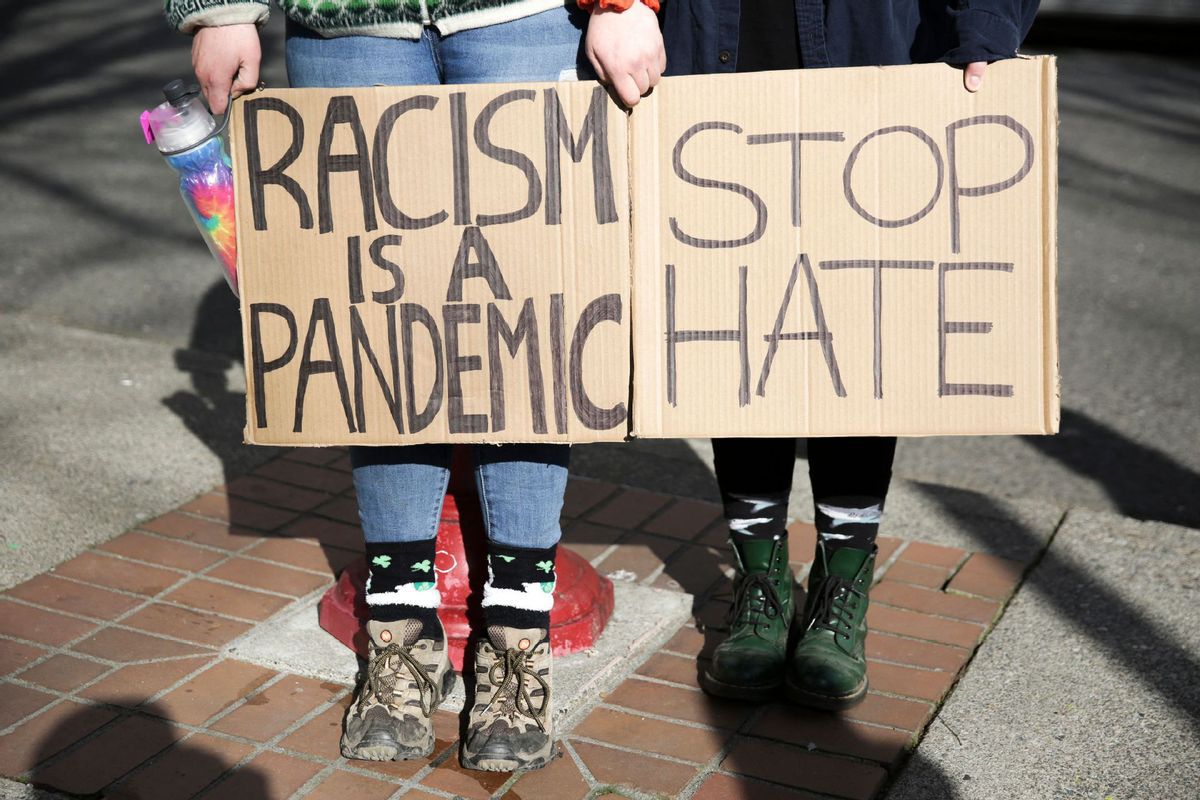Hatred of Asians has long roots in US
By LIU YINMENG in Los Angeles | CHINA DAILY | Updated: 2022-05-14 08:09

The increase in anti-Asian hate crimes coincided with a rise in geopolitical tensions, which manifested in deteriorating US-Japanese relations decades ago and is repeating itself in the face of current Sino-US tensions, said experts during a panel discussion on Wednesday.
During the virtual conference organized by the Brookings Institution, historians, scholars and civil organization leaders weighed in on the everyday struggles of Asian Americans and the ramifications from the anti-Asian violence that has spiked during the pandemic.
Cynthia Choi, co-executive director of San Francisco-based civil rights organization Chinese for Affirmative Action, recalled the 1982 tragic death of Vincent Chin, a Chinese American beaten to death by two white men who mistakenly thought Chin to be Japanese, during a period of heightened Washington-Tokyo trade tensions.
"Today, we have elective officials, largely Republicans, as we documented in our 2020 report, that have created the same dangerous environment for Asian Americans," Choi said.
"But let's also be honest that Democrats have also engaged in a'us vs them', as a winning political strategy as well, so this is a bipartisan issue."
Choi, who also co-founded nonprofit Stop AAPI Hate, confirmed a direct link between the anti-Chinese rhetoric and the rise in anti-Asian hate crimes.
The organization reported nearly 11,000 incidents against Asian Americans and Pacific Islanders from March 19, 2020, to Dec 31, 2021.
She noted that anti-Asian rhetoric is often matched with a policy agenda "built upon otherizing immigrants and people of color, punishing immigrants and protecting white supremacy". Anti-immigrant policies included restrictions on asylum-seekers, Chinese students, academics and many others.
Asian Americans and Pacific Islanders have also experienced institutional violence by law enforcement officers and a criminal justice system that has been demonstrated to be racially based, Choi said.
Jeffrey Bader, a senior fellow in the John L. Thornton China Center at the Brookings Institution, suggested that the outbreak of anti-Asian violence has the potential to erode the country's national security.
The US has fallen short of living up to the ideals of being a country welcoming different ethnicities and nationalities. Instead, it faces racial tensions, a broken immigration system, a sharp reduction in immigration and rising instances of hate crimes, he said.
teresaliu@chinadailyusa.com
























